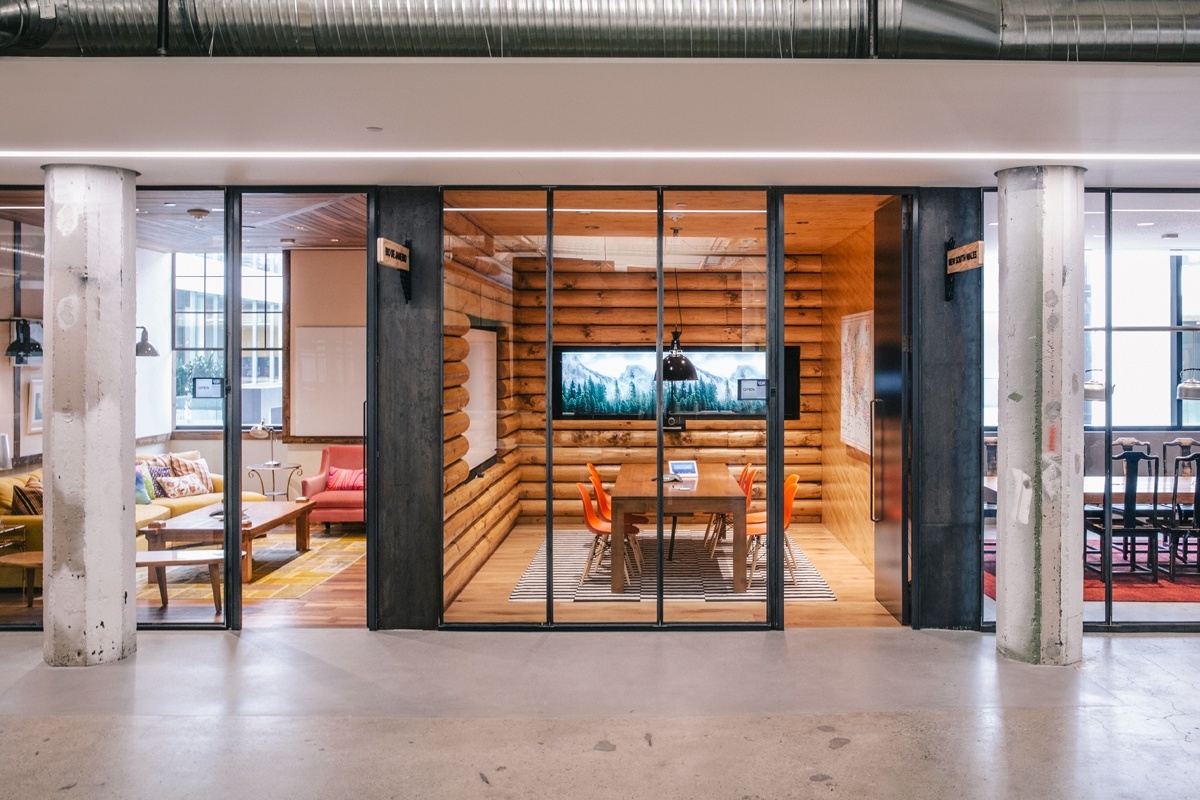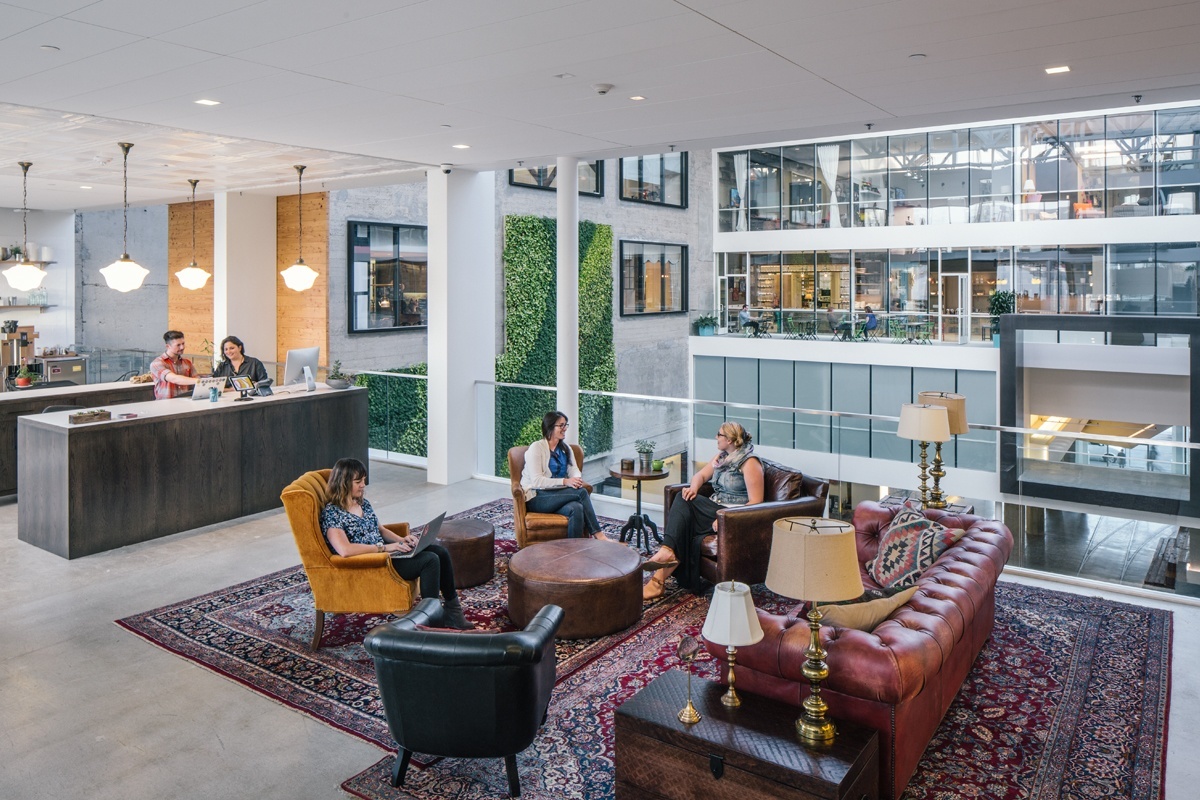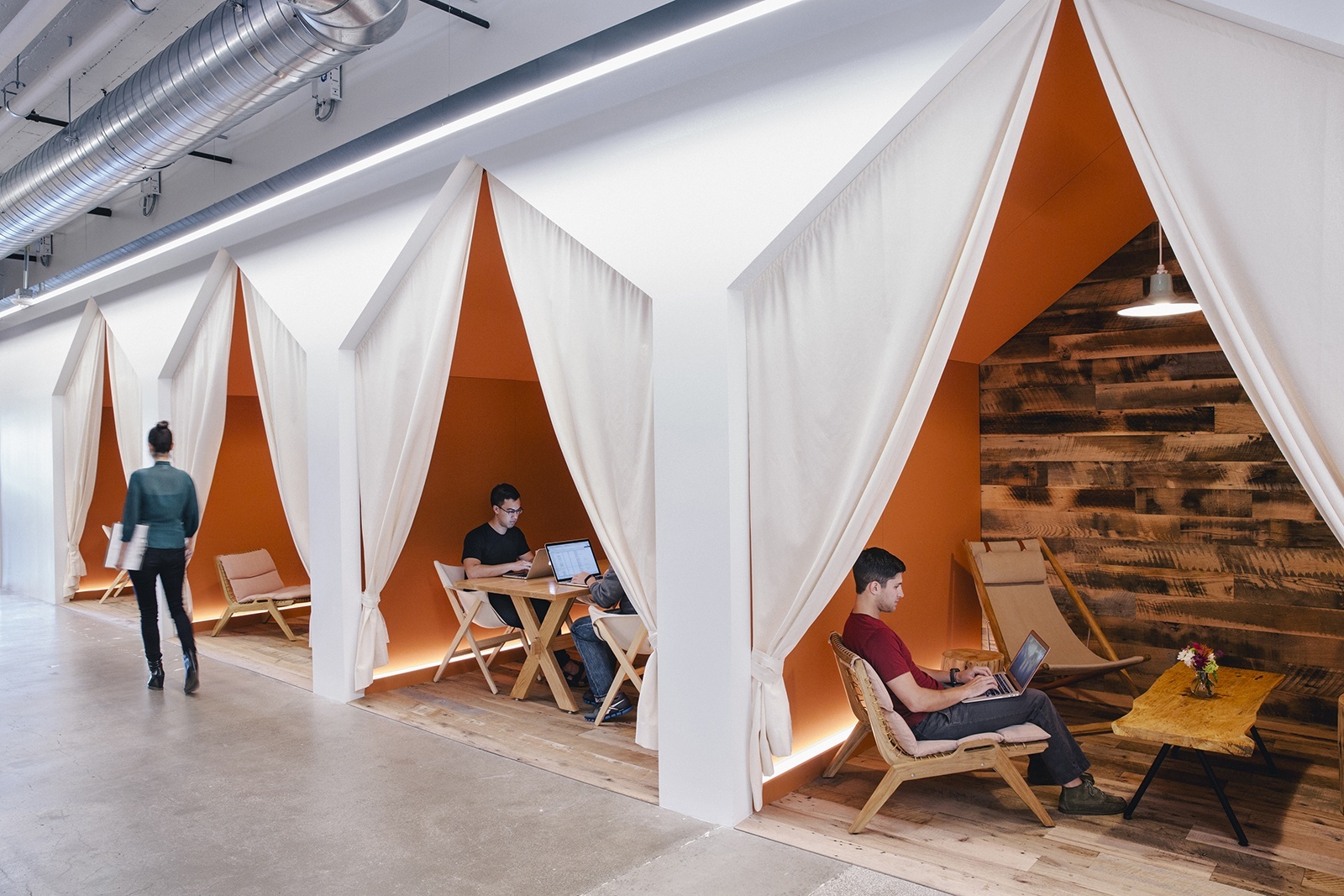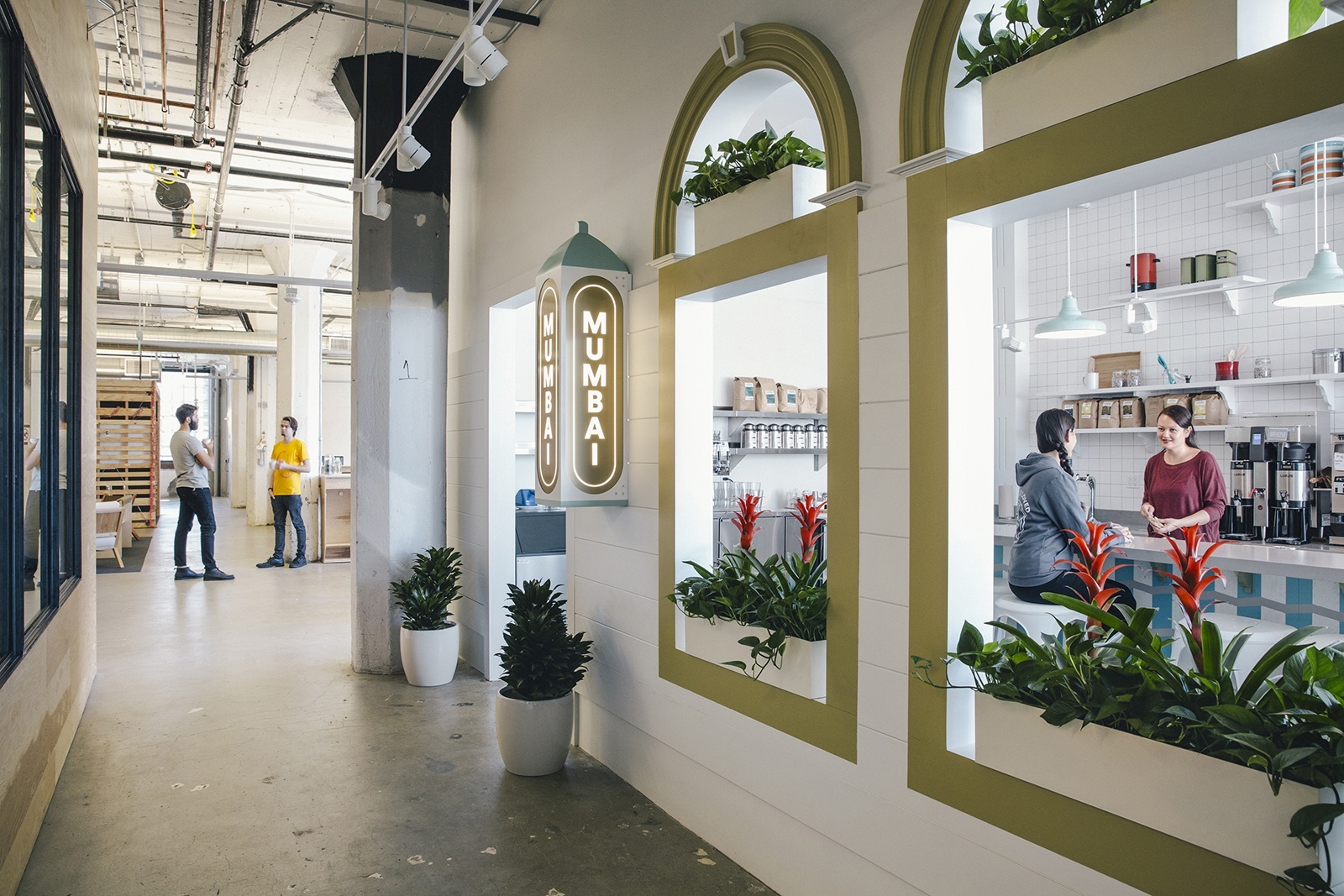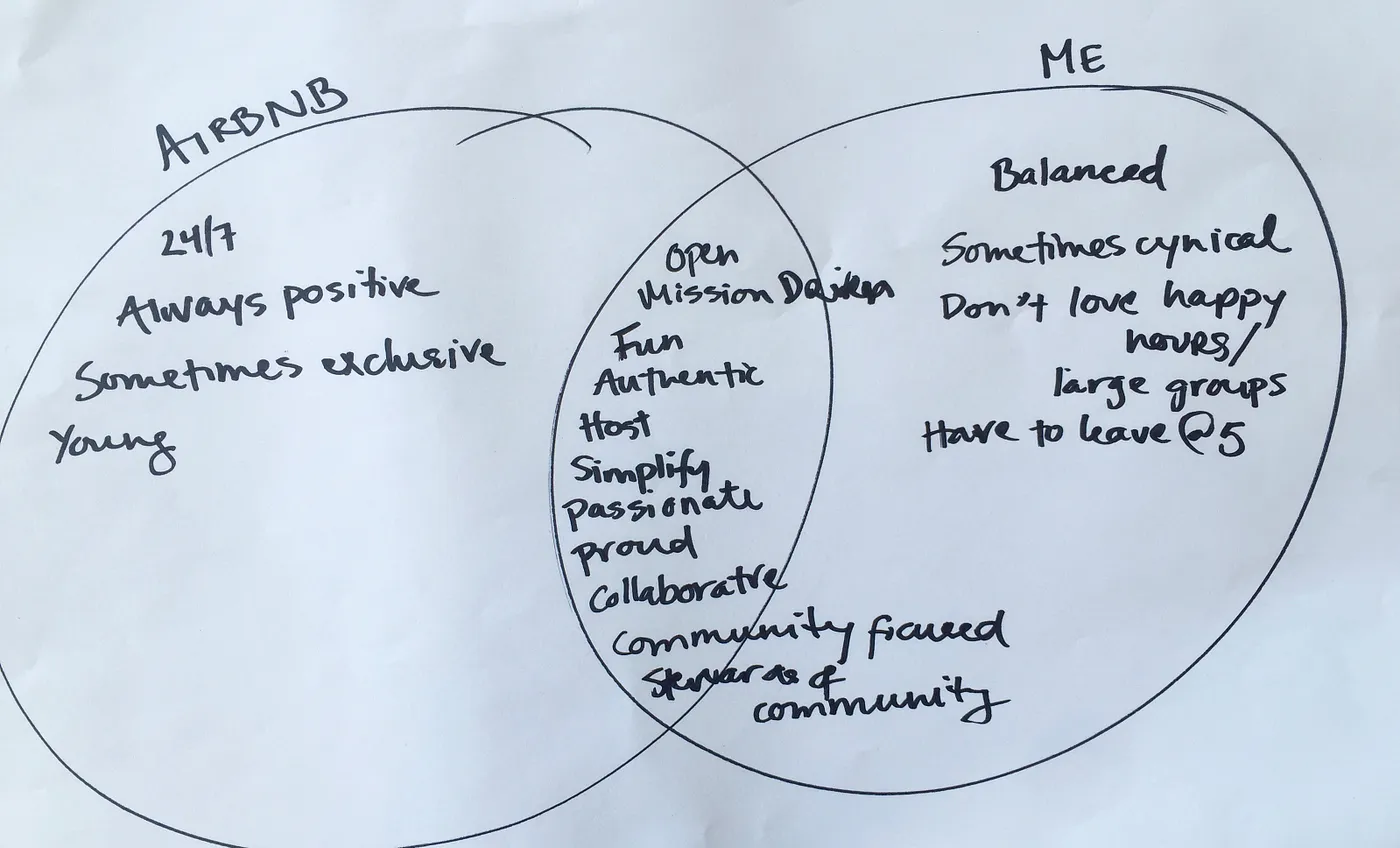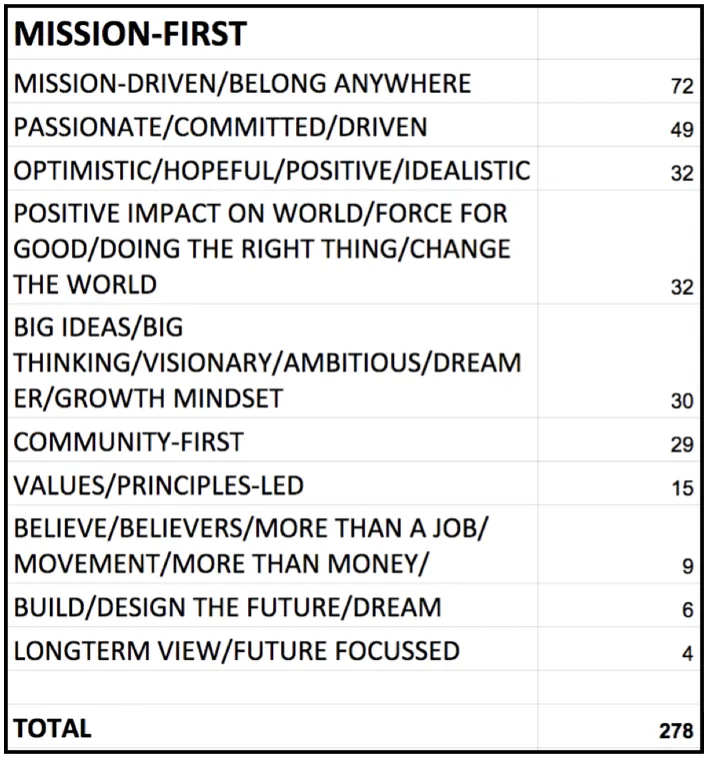Airbnb
In 2007, RISD graduate Brian Chesky received a message from his college friend, Joe Gebbia, inviting him to come out to San Francisco to start a business with him. After some consideration, Brian quit his job, packed up his things, and moved to San Francisco with $1,000 to his name.
Soon after, now roommates Brian and Joe found out that their rent was going up 25% and that it was due within a week. Knowing that there was a design conference in town and that every hotel would be booked, Joe had the idea to turn their apartment into a bed and breakfast for the weekend. The two quickly built a website, took three air mattresses out of the closet, and placed them in the living room and spare room. That weekend, they hosted three designers for $20 a night—and with that, Air Bed and Breakfast was born.
Industry
Hospitality
Founded
2007
Purpose
Cause
Create a world where Anyone can Belong Anywhere
Mission
Create a world where anyone can belong anywhere by focusing on creating an end-to-end travel platform that will handle every part of your trip
Values
Choose values that foster belonging
- Champion the mission.
- Be a host by being caring, open, and encouraging.
- Embrace the adventure by being curious, optimistic, and believing every person can grow.
- Be a cereal entrepreneur by transforming bold ambitions into reality.
Promise
Make guests feel at home in a strange place, and like a local
Tone of Voice
Straightforward, inclusive, thoughtful, and spirited
When crafting their tone of voice, Airbnb considered how it would sound in all scenarios, including error messages and account suspension notifications. They landed on four principles that would allow them to flex one over another depending on the situation:
- Inclusive for sensitive topics, like discrimination on their platform.
- Straightforward for when needing to be clear about policy changes.
- Thoughtful for stressful situations where they need to anticipate and meet people's needs.
- Spirited messaging to inspire people who are thinking about getting away.
Focus
Differentiators
Belonging
Unlike hotels where guests can feel like an "outsider," Airbnb differentiates themselves as "the one place where people could go to meet the 'universal human yearning to belong.'" Travelers have the opportunity to experience an authentic 'insider's view' by staying in someone's home in a less touristy neighborhood and getting a flavor of the local culture. Airbnb achieves this by creating experiences founded on these concepts:
- Trust: Through transparency and design, they challenge the fears of "stranger danger."
- Hospitality: They help hosts deliver "service with heart" through education and support.
- Community: They build scalable software enabling hosts and guests to come together and achieve economic and interpersonal goals.
End-to-end frictionless design
Airbnb CEO Brian Chesky believes that design is not just about how something looks—it is also about how something fundamentally works. Each moment of an Airbnb experience is storyboarded to ensure a frictionless experience from the time users visit the website to the time they get home from their trips. In this end-to-end design system, Airbnb focuses on building experiences around:
- High-quality visuals: Besides having an aesthetically pleasing design, Airbnb ensures that homes look lush and inviting in order to showcase the host's personality.
- Safety: They mitigate the 'stranger-danger' bias by creating an environment based on transparency where hosts and guests can get to know each other through reviews, ratings, and verification systems.
- Simplicity: They reduce solutions down to their essence in order to create a fast and seamless experience where users are never more than three clicks away from booking their ideal adventure.
Unique listings
Co-founder Brian Chesky describes Airbnb's core competency as the ability to "show cool spaces around the world." While hotels may be more reliable in some ways, Airbnb offers a unique experience each time, where every home is one of a kind. With over seven million homes to choose from, travelers can stay in castles, windmills, and even treehouses. There are even opportunities to stay with Brian at his house.
Customers
Immersive travelers
Airbnb guests, who are primarily millennials, are tired of the overpriced and overcommodified hospitality industry. They look for more affordable travel experiences that are "quirkier, more eclectic, and more original." If they are waking up in Cairo, they want to know and feel like they are in Cairo—not feel like they are in Cleveland.
Guests are attracted to the "imperfect authenticity" of staying in someone's house as it fully immerses them in new cultures while also making them feel at home.
Trade-offs
Don't be pressured to make decisions that will hurt your culture
In the early 2000s, the Samwer brothers were cloning US tech start-ups and then selling the clone to the original company for a considerable premium. By 2011, they created Wimdu, an Airbnb clone that grew to have more than 10,000 properties available in the first 100 days. They did this by rapidly growing and hiring 400 employees practically overnight.
This rapid growth concerned Airbnb co-founder Brian Chesky because, as he explains, "Most companies, if they lose Europe, they're just a smaller company. For Airbnb, if we lose Europe, there is no Airbnb. A travel website where you can't travel to Europe is like a phone without a signal."
However, when the Samwer brothers looked to sell Wimdu to Airbnb, Brian refused. He did not want to absorb 400 employees, who he felt were more like mercenaries for a company that cared more about short-term profits than believing in a long-term purpose.
Ultimately, Airbnb beat Wimdu in growth because, as Brian explains, "We had a better community, and [Wimdu] couldn't understand community. We ended up flying to Europe. We hired a bunch of country managers. We flew them all to San Francisco and trained them for a month or two. We said, 'Now go to your countries. Hire your team. Here's how you open a market. Here's how you open cities. And we opened eight or ten offices in three months."
Operations
Define your purpose
Four years after Airbnb began, co-founder Brian Chesky contacted Douglas John Atkin and asked him to help define Airbnb's brand. Douglas responded, "I think that instead of the brand, we should figure out the purpose of Airbnb and its community. There clearly is a huge and vital community of Hosts, Guests, and Employees. Let's figure out what role Airbnb plays in their lives and why they are committed to it. If we can do that, then it will be much easier to figure out what Airbnb's brand is."
Douglas developed Airbnb's purpose 'Belong Anywhere' based on these three ingredients:
- Ground it in truth. Douglas' first step was understanding the Airbnb experience from the users, not the executives. For three and a half weeks, Douglas spoke to 485 hosts, guests, and employees face-to-face worldwide. Their conversations focused on what drove loyalty to the brand, from the transactional to the emotional.
- Make it enormously ambitious. The purpose had to be "huge enough to seem almost impossible to achieve...so that for a hundred years or more, people will keep trying." That meant it also had to be "exciting enough to get out of bed for and inspirational enough to keep you going through the tough times."
- Make it specific but also just broad enough. The purpose had to act as a guardrail to keep the company focused but also be broad enough to inspire and encompass future innovations and products. Airbnb's Experiences, which focuses on things people do during their stays, and Open Homes, their philanthropic venture, were launched using their purpose as their guide.
Design beyond a 5-star experience
Airbnb co-founder Brian Chesky believes a five-star rating is the standard for most marketplace businesses. Unless the experience is horrible, people generally give five-star reviews. However, as Brian describes, "If you want to build something that's truly viral, you have to create a total mindf*ck experience that you tell everyone about."
To create those ultimate experiences, Airbnb worked with Pixar animators to storyboard every frame of a user's experience—from first logging on to the site to the moment a Guest returns home. Each storyboard included a one-star experience all the way to a seven-, ten-, or even eleven-star experience.
The point of the exercise is that while an eleven-star experience may not be feasible, the seven-star experience you thought was unattainable before now seems doable. "That's the sweet spot," Brian concludes, "You have to almost design the extreme to come backward."
Do things that don't scale
In the first years of Airbnb, when their number of users was low and primarily located in New York, an investor gave co-founder Brian Chesky this advice: “Go to your users. Get to know them.” Brian’s response was, “But that won’t scale. If we’re huge and we have millions of customers, we can’t meet every customer.” The investor replied, “That’s exactly why you should do it now because this is the only time you’ll ever be small enough that you can meet all your customers, get to know them, and make something directly for them.”
With that advice, founders Brian Chesky and Joe Gebbia flew to New York. They went to every host’s house, asking to meet and interview them and sometimes even staying with them. They also went door-to-door signing people up, hosted meet-ups, and approached people wherever they could to tell them how to monetize their apartments. During these conversations, the founders also observed how hosts used the Airbnb website. Each week, they would incorporate any feedback they received which led to breakthrough insights, like:
- How to educate users on uploading and taking professional photos for their properties
- Which profile details would make hosts more comfortable in allowing guests to stay with them
- What makes a great user experience when it comes to customer support
Make principled decisions in a crisis
In just eight weeks, Airbnb lost 80% of their business due to the pandemic. Co-founder Brian Chesky learned quickly that "there's not a lot of data in a crisis." Instead of relying on data-driven decisions, he needed to act swiftly and make principled ones. As he explains, "A principled decision is if I can't predict the outcome, how do I want to be remembered?"
Chesky developed four fundamental principles to help guide the company during this time:
- Principle 1: Act fast. Be intuitive. Be courageous. Going into the pandemic, Chesky had concerns that Airbnb was becoming too bureaucratic. There were at least ten divisions, each having their own operations, design, and marketing teams. The pandemic forced Chesky to pull the trigger on rebuilding the company from the ground up, consolidating all divisions so that there would only be one operations group, one design group, and so on for the entire company.
- Principle 2: Preserve cash. Airbnb cut the size of its staff by 20%, reduced executives' pay, and reduced the Marketing budget to zero. Chesky instead gave over 100 press interviews that year.
- Principle 3: Act with all stakeholders in mind. Brian approached the pandemic with the idea that Airbnb needed to be as "generous as we possibly could be." Each person who lost their job was given 14 weeks of severance and one year of health insurance. The Airbnb recruitment team also helped them find new jobs. Guests received full refunds for any cancellations due to the pandemic. Airbnb also dispersed $250 million amongst Hosts to compensate for the $1 billion in cancellations that occurred.
- Principle 4: Play to win the next travel season and continue to move forward. Within three weeks, Airbnb enacted a plan to cut back on products like luxury home rentals and hotel expansions and shifted towards rural vacations that people can book within a day's drive, long-term rentals, and virtual events.
Ask users about the product of their dreams
At the beginning of Airbnb, co-founders Brian Chesky and Joe Gebbia would sit down personally with customers to understand how they could improve their business. However, they didn't ask about the product that they had already built. They found that by asking questions like, 'What can I do to make this product better?' they received small, uninspiring answers.
To gain the most insightful feedback, they asked about the product of their customers' dreams, with questions like:
- What can we do to surprise you?
- What can we do, not to make this better, but to make you tell everyone about it?
Create a singular roadmap for the entire company
Instead of multiple roadmaps spread over multiple divisions, CEO Brian Chesky consolidated Airbnb down to one division made of functional teams that share a singular roadmap. This rolling two-year roadmap contains every Airbnb project being worked on and is aligned to a May or November release date.
For each project, Brian reviews all of its pieces, including the marketing. He explains, "Every week, I would try to see the equivalent of at least a semi-assembly of the entire new product we were working on, which allowed me to identify the different bottlenecks happening in the company."
While the road map was designed not to change for the upcoming month, it is reviewed and updated monthly, allowing the next two years to stay fluid. As for unexpected events, Airbnb ensures that enough resources are in reserve to pivot as needed.
Combine product management with marketing
Instead of having product managers, those who lead the development of the product, and outbound marketers, those who promote the product, Airbnb consolidated those responsibilities into one Product Marketing role. As co-founder Brian Chesky explains, "We...connect product and marketing together. Product managers at a company are usually like chefs, marketing are like waiters, and chefs never allow the waiters in the kitchen, or they get yelled at. And I thought, well, what if you actually have them collaborate on a product?"
This shift allows outbound marketers, who have in-depth knowledge of customers and how to tell a story, to collaborate in the innovation process from the beginning. It then becomes the responsibility of product marketing to promote the product but also to "make sure we understand the story we're telling, who the product's for, and make sure everything we deliver ships to that product."
Culture
Philosophy
Don't mess up the culture
After closing their Series C with investor Peter Thiel, co-founder Brian Chesky asked him for the most important piece of advice Peter could give. His reply was, "Don't f*ck up the culture."
In an interview at Stanford University, Brian explains that the way to not mess it up is "by focusing on it and designing it...Now, that doesn't mean you control everything [about it]. The whole point of culture is you only control a few things." For Brian, those few things are ensuring that the mission and the core values are infused into everything they do.
When explaining this to staff in an open letter, Brian writes, "Culture is a thousand things, a thousand times. It’s living the core values when you hire; when you write an email; when you are working on a project; when you are walking in the hall."
"The stronger the culture, the less corporate process a company needs," he continues. "When the culture is strong, you can trust everyone to do the right thing. People can be independent and autonomous. They can be entrepreneurial...Ever notice how families or tribes don’t require much process? That is because there is such a strong trust and culture that it supersedes any process."
Leadership
Constantly share what you have learned
Every Sunday night, co-founder Brian Chesky emails all Airbnb staff about something he has learned, something on his mind, or a principle he wants to convey. He describes this Sunday Night Series as "not really a tactical email, but a more above the trees, thought-provoking, cultural email." Topics range from the advice he learned about elite recruiting from a leading Sports Agent to a three-part series on 'How to learn.'
Be involved in the details
Some companies have leaders who can lead people but are not very technical in their team's field. At Airbnb, leaders are not only experts in their field but are required to be fully involved in every detail of a project. This expectation includes CEO Brian Chesky, who reviews every company project weekly, bi-weekly, every four weeks, or eight weeks.
Brian explains, "People think that a great leader's job is to hire people and just empower them to do a good job. Well, how do you know they're doing a good job if you're not in the details?" But being in the details is not about micromanaging. Instead, it is about ensuring alignment and that everyone is "rowing in the same direction."
At first, this caused a lot more work for Airbnb's leaders, but within two years, Brian found himself less busy. Teams became aligned, resulting in fewer meetings, fewer conflicts, and less turnover. Brian explains, "Before, I would get ten surprises, and nine were bad. Now, I get ten surprises, and nine are good. And you don't really have to do anything about good surprises, only bad ones."
Push your people to make their ideas 10x better
CEO Brian Chesky has a saying at Airbnb that when someone proposes a project goal, he says, "Add a zero at the end." The exercise is not to arbitrarily make goals more difficult but instead to force people to reimagine the possibilities of how to make their work 10x bigger, faster, or better.
He explains, "When you push people, they will think about the problem differently. And to think differently about the problem means you have to deeply understand the problem. And to deeply understand the problem, you have to break it into components." As a result, staff begin to start solving problems through first principle thinking where they question every assumption they have about a given problem, then create new groundbreaking solutions from scratch.
Atmosphere
Make time to talk about elephants, dead fish, and vomit
When Airbnb co-founder Joe Gebbia received his anonymous 360-degree review results, he learned that his peers perceived him as a perfectionist who was defensive and too hard-working. People were afraid to be candid with him, causing problems to fester. Additionally, staff felt forced to work his late hours, causing burnout and a desire to leave the company.
To create a space where people could be honest and open about these issues sooner, Joe addressed all of this feedback at a company-wide meeting and introduced a new philosophy called elephants, dead fish, and vomit.
- Elephants are the big truths that no one dares to bring up or discuss.
- Dead fish are personal grievances or things in the past that people can't seem to forget or let go of.
- Vomit sessions allow people to speak freely about issues without interruption and risk of judgment.
Now, during every company-wide meeting, Joe addresses these topics; division managers dedicate time solely to talking about them; and Gebbia receives emails from staff with all-caps subject lines: JOE: THE BAD NEWS YOU NEED TO HEAR.
Immerse your people in an environment that embodies your product
If staff are generally in the office more than at home, it was essential to Airbnb's leaders that their office space not only felt like home but also connected staff deeply to their work. Inspired by the unique listings on their website, co-founder Brian Chesky set out to recreate their office as Airbnb listings down to the smallest detail. They started by contacting hosts, asking if it was okay to recreate their homes, and then asking for an inventory of all their furniture and fixtures.
Soon, workspaces mirrored global hosting locations, from camping tents to Mumbai cafes. The cost was less than expected as most home furniture is cheaper than office furniture. The designs also became a huge competitive advantage for hiring, even inspiring tens of thousands of people each year to take a tour.
Reinforce your values at every touchpoint
When Airbnb staff use their keycard to check in at work, above it reads their value, Champion the Mission. This is just one of the subtle ways that co-founder Brian Chesky integrates Airbnb's values into as many touchpoints as possible around the company. He explains that "Culture is about repetition. It's about repeating over and over again the things that really matter at the company."
Be an ultimate user of your own products
Airbnb CEO Brian Chesky has always been an avid guest of Airbnb rentals, and in 2022, he began spending over half of each year living in them. His goal of becoming the ultimate guest was driven by the belief that all staff must become experts in every part of the product, and experience it from the user's perspective.
This long-standing belief in being a user of your products has also led Airbnb to provide a $2,000 credit to each employee every year to stay at Airbnb rentals. This stipend is paid quarterly, encouraging staff to understand the guest experience and incentivizing them to maximize their paid vacation time.
Practices
Let staff live and work anywhere
To hire and retain the best people, Airbnb designed a way for staff to live and work from anywhere. The success of this design is based on five key features:
- Work from home or the office. Employees whose core job responsibilities don't require being in the office can work where they are most productive.
- Move anywhere in the country you work in, and your compensation won't change. Airbnb designated a single pay tier for each country. Anyone's salary that was set using a lower location-based pay tier, received an increase.
- Travel and work around the world. Employees can live and work in over 170 countries for up to 90 days a year in each location. Permanent addresses for tax and payroll purposes are still required.
- Meet up regularly for team gatherings, off-sites, and social events. Instead of spending a set number of days each week in the office together, all employees are expected to come together every quarter for about a week at a time.
- Work in a highly coordinated way. Airbnb uses a single company calendar centered around its two major annual product releases. All events, collaboration sessions, and off-site visits are planned around this calendar, even for staff that don't directly work on those projects.
Collaborate when redefining your core values
In 2016, after surveying employees, Airbnb realized that the six core values that they devised in 2012 weren't being "used enough." Employees felt there were too many and that some were either too obscure or not a true representation of the Airbnb culture. Over the next year, Douglas Atkin, Airbnb's Global Head of Community, would help the company redefine their values by following these steps:
- Define the ideal characteristics of core values. Douglas and his team asked employees at every level, location, department, and tenure to define what they felt were the ideal characteristics of a company's core values. This helped to determine what was needed to make the new values useful.
- Compare the ideal characteristics against your current values. Douglas then asked employees to compare Airbnb's current values to the ideal characteristics by putting either an X or a checkmark next to each characteristic. This helped diagnose what was wrong with the current values.
- Interview the Founders to define Meaningful Moments. To prevent them from defining aspirational values rather than ones grounded in what makes the company great today, Douglas asked the Founders to list all of the Meaningful Moments in Airbnb's history. He then asked them to extract the value that led to those Moments and reduce that list to the most important three or four.
- Interview staff to understand where their personal values align with the company's. Over 300 employees were asked to draw a Venn diagram with two circles. Above one circle, each person wrote 'Me,' and above the other, 'Airbnb.' Staff was then asked "to list the personal values that drove their own behaviors and decisions, splitting them into those that they thought they shared with Airbnb and those that didn't." They then wrote down what they perceived to be Airbnb's values that they didn't share with the company in the 'Airbnb'-only part of the circle.
- Combine the data. Douglas and his team went on to list every single value mentioned by staff and rank-ordered them by the number of mentions. The team then organized them into the most obvious groupings with the number of mentions listed alongside.
- Define your values based on shared truths. Douglas discovered that the top three areas identified by employees and the Founders matched with three of their current values. They also found that two of the existing core values weren't 'core' but 'aspirational' and removed them. In the end, four of the original six values were kept and defining 'Behaviors' were added based on the feedback to make each value more clear and actionable.
Bring together the entire team annually
Each year, Airbnb brings together their entire international staff for one week in San Francisco. This four-day event, called One Airbnb, is a way to create a sense of unity for employees and make them feel like they belong.
- Day 1: Plan for the future and reflect on the past. The Founders share the successes from the past year and outline the strategy for the year to come.
- Day 2: Focus on the culture. Using the results of the company-wide survey, teams of 15 staff brainstorm on how to improve the company culture. Each team summarizes their ideas into the length of a tweet and proposes three actions to improve the culture. That evening, local staff host visiting staff at their home or a restaurant for a night of food and fun.
- Day 3: Learn new skills. In the morning, staff choose from over 40 foundational courses to attend, with topics ranging from public speaking to project management. In the afternoon, staff host workshops sharing their non-work-related hobbies and skills. At night is a company-wide dinner that turns into a karaoke party.
- Day 4: Share your work, volunteer, and celebrate each other. People from every part of the company set up a booth to share their work and answer any questions. They then break up into smaller groups and volunteer somewhere in the city. That evening is an award ceremony where top-performing staff are recognized for their achievements.
Recruitment
Look for people who disrupt the status quo
Instead of asking the conventional question, "Tell me about yourself," Airbnb co-founder Brian Chesky asks candidates to summarize their lives in three minutes or less. This provides candidates an opportunity to share their highest personal and professional achievements and gives Brian a chance to see if candidates are ambitious, creative, and forward-thinking.
Brian explains, "I'm trying to understand the two or three most remarkable things you've ever done in your life because if you've never done anything remarkable in your life until this point, you probably never will."
Hire based on shared core values
Besides the six to eight functional skills interviews each Airbnb candidate goes through, candidates undergo two Core Values Interviews. These interviews are conducted by employees not in the candidate's discipline, which removes any hiring bias. This is helpful as core values interviewers have veto power on all candidates, regardless of their skill level or whether they are applying to be an intern, an executive, or on the Board of Directors.
During these interviews, time is spent understanding a candidate's motivation to join Airbnb and how their life experiences reflect the company's values. For example, while Airbnb does not require candidates to have been a Host, they will look to see if they embody the 'Be a Host' value by asking questions like, "How do you welcome people into your house," or by noticing how candidates clean up after themselves at the end of the interview.
While it sometimes takes longer than six months to find a suitable candidate for a lead position, CEO Brian Chesky believes it is crucial to pay this short-term price if you believe in the long-term gain.
Development
Network to learn from experts at companies you admire
Instead of trying to synthesize the advice from ten different people on a particular topic, Airbnb co-founder Brian Chesky identifies the one person who is a subject matter expert on a topic and goes directly to that person for advice. Chesky has proactively reached out to:
- The French Laundry to learn about hospitality and how the restaurant treats its customers and presents its cuisine
- Former CIA director George Tenet to learn about culture and how George gets people to feel committed in a place where everyone's a spy
- Zappos to learn about how they developed their culture
- Apple’s Jony Ive to learn about design
- LinkedIn’s Jeff Weiner to learn about the importance of removing underperforming managers
- Disney’s Bob Iger for advice on management
- Facebook's Sheryl Sandberg to talk about international expansion and the importance of empowering women leaders
- eBay's John Donahoe to discuss scaling operations and managing a board
- Salesforce.com's CEO Marc Benioff to learn how to push an executive team
Create time for employees to share their skills
In the spirit of building a sense of community among staff, Airbnb regularly hosts Air Shares. These are opportunities for employees to share their work- or non-work-related skills with other team members across the company. Aisling Hassel, Airbnb's Global Head of Customer Experience, explains, "If you are fantastic at making a crème brûlée, we will organize an Air Share where you can teach others how to make crème brûlées." She continues, "[Air Shares] are immensely popular and allow us to leverage each other's strong qualities."
Experience
Driver
Enable people to live like locals and feel at home anywhere in the world
When travelers leave their homes towards a new destination, they start their journey alone, not knowing what awaits them. However, when Airbnb hosts welcome and accept these travelers, fear and shyness dissipate. Guests feel safe and confident. They find their inner adventurer who is free to discover hidden parts of the world—places where only locals know. They change from 'outsiders' to 'insiders' and feel like they can belong anywhere. By the time they return home, they have transformed into more complete versions of themselves.
Setting
Design for trust
For Airbnb to succeed, they must continually facilitate trust between complete strangers. By applying sound design principles to their platform, Airbnb breaks down "stranger-danger" biases with:
- Required photos: Hosts must upload clear pictures of their faces to humanize themselves to the Guest.
- Structured information: Information is presented to guests in a hierarchical design to make the critical details as transparent as possible. For example, a Host's ratings and responsiveness speed are clearly displayed for Guests so they know exactly what to expect.
- Frictionless search: Guests can quickly search in a Host's comment section for keywords important to their decision-making.
- Tailored messaging systems: When contacting a Host, too little information and too much information from the Guest result in lower acceptance rates. The size of the communication box was designed to suggest just the right amount of information for Guests to provide. Text prompts also guide Guests on what information to include so that Hosts can know about a Guest's personality and character.
- Delayed payments: Airbnb charges travelers at the time a reservation is made but holds the payments until twenty-four hours after check-in to ensure everything went as expected.
- Two-way reputation systems: Both Hosts and Guests have the opportunity to review one another. Reviews are not revealed until both parties have submitted them to avoid retaliatory ratings.
- Shortened review periods: Guests and Hosts have limited time to leave a review to reduce recall bias as memories degrade over time.
Messaging
Share your purpose publicly
In 2016, Airbnb launched a campaign sharing their purpose with the world. By doing this, they made themselves and their Hosts accountable for ensuring "Anyone can Belong Anywhere." The campaign included:
- An online platform that allowed people to create their own version of the Airbnb logo
- A variety of communications, billboards, and merchandise
- A social challenge to create #onelessstranger, which included sending $10 to 100,000 community members and asking them to use the money to deliver a personal or creative act of kindness
- The 'Don't Go There. Live There.' video
Create an icon that transcends culture and language
To create an icon that embodied Airbnb's purpose of belonging, the company collaborated with branding agency DesignStudio. Over two weeks, DesignStudio had to "become Airbnb" to understand the company fully. They held over 50 staff interviews, which included everyone from kitchen workers to designers, and sent their own staff to 18 countries to live as guests and visit Airbnb offices. Through this collaboration, The Belo was created. It is an icon designed to transcend culture, language, and generations because:
- It is simple enough that anyone could draw it and make it their own.
- It embodies the ideas of connection, exploration, and love.
- It can serve as the universal symbol of Belonging as it is not rooted in an English wordmark.


